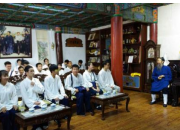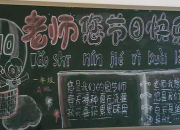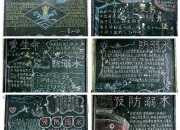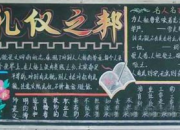高一英语第1单元课件
时间:2021-08-31英语(English),属于印欧语系中日耳曼语族下的西日耳曼语支,是由古代从丹麦等斯堪的纳维亚半岛以及德国、荷兰及周边移民至不列颠群岛的盎格鲁、撒克逊和朱特部落的.日耳曼人所说的语言演变而来,并通过英国的殖民活动传播到了世界各地。下面是小编为你带来的高一英语第1单元课件 ,欢迎阅读。
Grammar
1.Teaching objectives
Learn to use direct speech and indirect speech
2. Teaching important point
Summarize the rules of Direct Speech and Indirect Speech.
3. Teaching difficult point
Learn about the special cases in which the tenses shouldn’t be changed.
4. Teaching methods
Discussing, summarizing and practicing.
5. Teaching procedures
Step1 Lead in
T: In the last lesson, we learned Anne Frank’s story. She is telling her stories to two of her friends—you and Tom. Tom has something wrong with his ears,so you have to repeat Anne’s sentences, using indirect speech. Sometimes you explain Tom’s sentences to Anne.
“I have to stay in the hiding place.” said Anne. →
Anne said she had to stay in the hiding place.
“Do you feel sad when you are not able to go outdoors?” Tom asked Anne. →
Tom asked Anne if/whether she felt sad when she was not able to go outdoors.
“I don’t want to set down a series of facts in a diary,” said Anne.→
Anne said that she didn’t want to set down a series of facts in a diary.
“What do you call your diary?” Tom asked. →
Tom asked what she called her diary.
Ss go on this topic by themselves.
Step2 Grammar
T: Now let’s look at these sentences again. If we want to change Direct Speech into Indirect Speech, what should be changed?
Ss discuss by themselves.
Ss: sentence structures, tenses, pronouns, adverbials of time and place and verbs should be changed.
T: Quite right. Look at the form on the screen. These are the rules.
直接引语变成间接引语时,要注意以下几点:人称变化、时态变化、宾语从句要用陈述句语序。
1.直接引语是陈述句,变成间接引语时,由连词that 引导。例如:
She said, "I am very happy to help you."→
She said that she was very happy to help you.
2. 直接引语是一般/选择疑问句,变成间接引语时,由连词whether或if 引导。例如:
He asked me, "Do you like playing football?"→
He asked me if/whether I liked playing football.
注意:大多数情况下,if和whether 可以互换,但后有or not,或在动词不定式前,或放在介词后作连接词时,一般只用whether。例如:
She asked me whether he could do it or not.
3. 直接引语是特殊疑问句,变成间接引语时,由相应的疑问词who, whom, whose, how, when, why, where 等引导。例如:
My sister asked me, "How do you like the film?"→
My sister asked me how I liked the film.
4. 直接引语是祈使句,变成间接引语时,把动词原形变成动词不定式,并在动词不定式前加tell, ask, order 等的宾语。例如:
The captain ordered, "Be quiet."→
The captain ordered us to be quiet.
注意:此种情况的否定句,在动词不定式前加not。
My teacher asked me, "Don't laugh."→
My teacher asked me not to laugh.
5. 一些注意事项
(1)间接引语一般要用陈述句的语序,即主、谓、宾的顺序。例如:
He asked Lucy, "Where did you go?"→
He asked Lucy where she went.
Tom said, "What do you want, Ann?"→
Tom asked Ann what she wanted.
(2)直接引语是客观事实、普遍真理等,变成间接引语时,时态不变。例如:
They told their son, "The earth goes round the sun."→
They told their son that the earth goes round the sun.
(3)直接引语变间接引语时, 指示代词、时间状语、地点状语等要作相应的变化。例如:
He said, "I haven't seen her today."→
He said that he hadn't seen her that day.
注意:如果转述时就在原来的地方,就在说话的当天,就不必改变指示代词、时间状语、地点状语等。
Direct Speech Indirect Speech
Present past
Past past and past perfect
Present perfect past perfect
Past perfect past perfect
Present continuous past continuous
Step3 practice
T: Turn to Page 5. Please change the following direct speech into indirect speech and indirect into direct.
1. “I’m going to hide from the Germans,” Anne said.
2. “I don’t know the address of my new home,” said Anne.
3. “I cannot ask my father because it is not safe to know,” she said.
4. “I had to pack up my things very quickly,” the girl said.
5. “Why did you choose your diary and old letters?” Dad asked her.
6. Mum asked her if/whether she was very hot with so many clothes on.
7. Margot asked her what else she had got.
8. Anne asked her father when they would go back home.
9. Anne asked her sister how she could see her friends.
10. Mother asked Anne why she had gone to bed so late the night before.
Step4 Correcting mistakes
T analyses the common mistakes Ss have made during the practice.
T: Now let’s look at the screen and pay attention to these sentences. Choose the right sentence and tell me why the other one is wrong.
Step5 A game
Play a guessing game “who is my secret friend?” One student comes to the front with his partner.
The rest students ask him questions while his partner changes them into indirect speech. In the end, the person who has guessed the right answer can come to the front to take the place of the first student .So the game goes on.
Suggested sentences:
Can your friend speak?
What does he/she wear today?
Is he/she tall or short?
What do you and your friend do in your free time?
Do you quarrel with each other?...
Step6 Homework
Do Exercise1 on Page 42. Here is another page of Anne’s diary. Read it through and then use indirect speech to retell the story.
Period 4 integrating skills “Friendship in Hawaii”
1. Teaching objectives:
To learn about ways of showing friendship in Hawaii and share their opinions on friendship. Because it is a lesson of integrating skills, Ss are also asked to write sentences on friendship.











